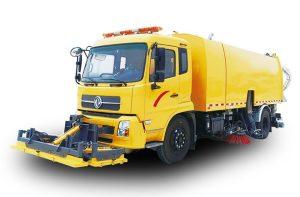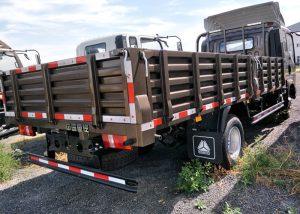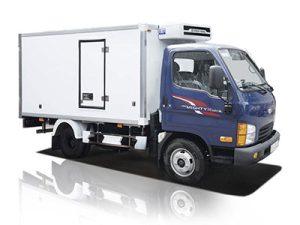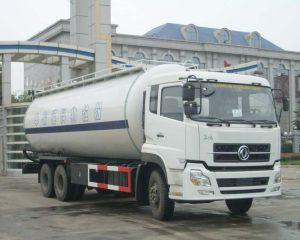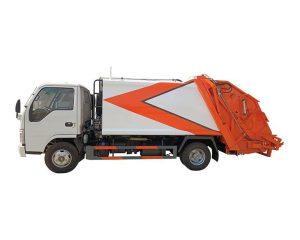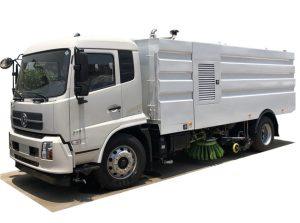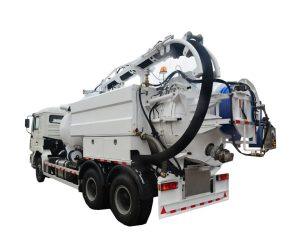Monday to Saturday - 8:00 -17:30
Sewer Pump Truck: Everything You Need to Know
When it comes to managing wastewater and sewage, sewer pump trucks play a crucial role in maintaining the cleanliness and functionality of our urban and rural environments. These specialized vehicles are designed to transport and process waste efficiently. In this article, we will dive deep into the world of sewer pump trucks, exploring their features, benefits, types, operation, maintenance, and much more.
Understanding Sewer Pump Trucks
Sewer pump trucks are heavy-duty vehicles equipped with pumps and storage tanks specifically designed for transporting sewage and wastewater. They are essential for various applications, including municipal sewage management, industrial waste disposal, and emergency response to overflows or blockages. Understanding their components, functionality, and importance can give valuable insights into their operation.
Components of Sewer Pump Trucks
| Component | Description |
|---|---|
| Pump | Transfers sewage from the source to the tank. |
| Storage Tank | Holds the sewage until it is disposed of or treated. |
| Vacuum System | Creates suction to draw waste into the tank. |
| Hoses and Fittings | Connect the truck to the sewage source and allow for discharge. |
How Sewer Pump Trucks Work
The operation of a sewer pump truck involves several steps. Here’s a simplified breakdown:
- The vacuum system is activated to create suction.
- Hoses are connected to the sewage source, allowing waste to be drawn into the storage tank.
- Once the tank is full, the truck drives to a treatment facility or a designated disposal site.
- The waste is discharged from the tank using gravity or pressure.
Types of Sewer Pump Trucks
Sewer pump trucks come in various types based on their specific applications and capacities. Here are the most common types:
1. Straight Trucks
These are the most commonly used sewer pump trucks. They are easier to maneuver and are typically equipped with a large storage tank and vacuum capabilities.
2. Combination Trucks
Combination trucks combine vacuum and jetting capabilities, making them versatile for sewer cleaning and maintenance tasks. They can clear blockages and pump out wastewater.
3. Trailer-Mounted Trucks
These trucks have a trailer that can be towed behind a pickup or another vehicle. They are ideal for smaller jobs or areas that can’t accommodate larger trucks.
4. High-Pressure Jetting Trucks
These trucks are specifically designed for high-pressure jetting and are often used for cleaning out clogs in sewer systems.
Benefits of Using Sewer Pump Trucks
Utilizing sewer pump trucks can provide numerous benefits, including:
- Efficiency: They can transport large volumes of waste quickly.
- Reduced Odors: Properly maintained trucks minimize unpleasant smells.
- Emergency Response: They are often essential during floods or sewage backups.
Proper Maintenance of Sewer Pump Trucks
Regular maintenance of sewer pump trucks is crucial for ensuring reliable operations. Here are some essential tips:
1. Routine Inspections
Conduct daily inspections before use, focusing on the pump, storage tank, hoses, and vacuum systems for any signs of wear or damage.
2. Regular Cleaning
After each use, clean the storage tank and hoses to prevent the buildup of waste and odors. Use appropriate cleaners designed for this purpose.
3. Check Fluid Levels
Regularly check and top off hydraulic oil, engine oil, and coolant levels to ensure optimal performance.
Practical Applications of Sewer Pump Trucks
Sewer pump trucks are employed in various settings. Here are some practical examples:
Municipal Services
Cities utilize sewer pump trucks to manage wastewater from households and businesses, ensuring safe and clean sewage disposal.
Construction Sites
During construction activities, sewer pump trucks are used to handle wastewater generated on-site, particularly in areas with poor drainage.
Environmental Clean-Up
After environmental disasters, such as floods, sewer pump trucks can assist in the removal of contaminated wastewater and debris.
The Importance of Sewer Pump Trucks for Public Health
Proper sewage management is crucial for public health. Sewer pump trucks play a vital role in ensuring that waste is disposed of properly, thereby reducing the risk of waterborne diseases and environmental contamination.
Costs Associated with Sewer Pump Truck Services
The costs of hiring sewer pump truck services can vary significantly based on several factors:
1. Type of Sewage
The nature of the waste being transported can influence service fees. Toxic or hazardous waste may incur higher costs.
2. Distance
Longer distances to disposal sites may lead to increased transportation fees.
3. Job Complexity
More complex jobs that require advanced equipment or specialized skills may have higher rates.
| Job Type | Estimated Cost |
|---|---|
| Residential Sewage Removal | $150 – $500 |
| Commercial Waste Transportation | $300 – $1,000 |
| Emergency Call-Out | $500 – $2,000 |
Frequently Asked Questions (FAQ)
1. How often should sewer pump trucks be maintained?
It is recommended to conduct maintenance checks on sewer pump trucks every 1,000 miles or after extensive use, depending on operational conditions.
2. What should I do if I suspect a sewage leak?
Immediately contact a professional sewer service to assess the situation and deploy a sewer pump truck if necessary. Avoid contact with the wastewater.
3. Can sewer pump trucks handle hazardous waste?
Yes, but specific trucks are designed for hazardous materials. Always ensure that the correct type of truck is used for such waste.
4. How long does it take to pump out a septic tank?
The time it takes to pump out a septic tank can vary based on tank size, but generally, it takes about 30 minutes to an hour.
5. Why do sewer pump trucks smell bad?
It is normal for sewer pump trucks to carry the smell of sewage. However, proper maintenance and cleaning can significantly minimize odors.
6. Are sewer pump trucks safe to operate?
Yes, when operated by trained professionals following safety protocols. Proper training and equipment are essential to ensure safety.


